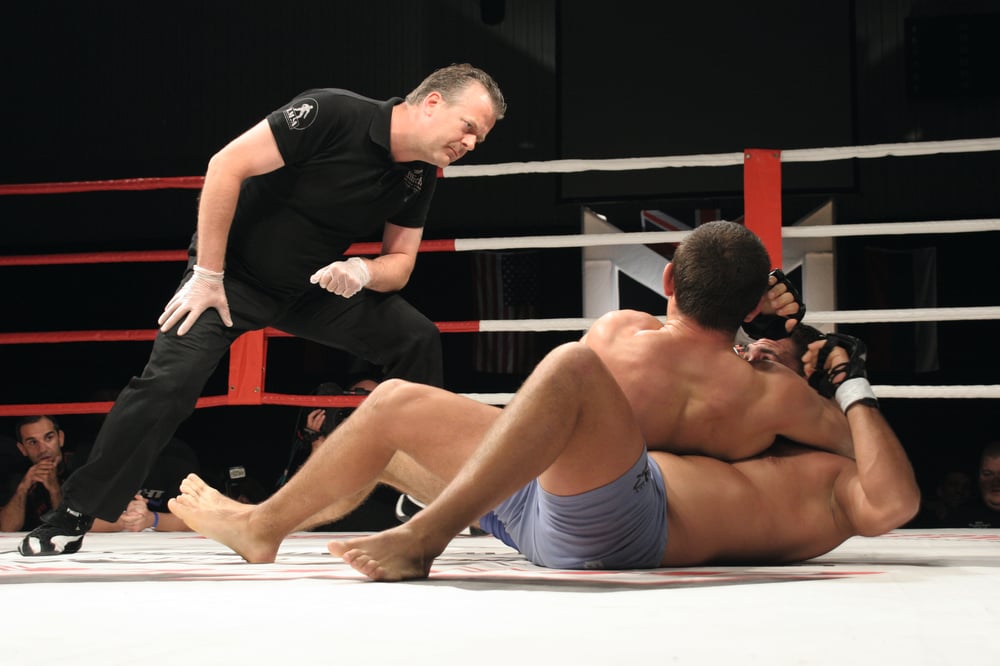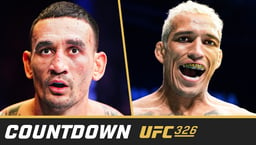
Issue 054
September 2009
Possess the Right Qualities
“As far as personal qualities, a referee must have integrity in what they do, be honest about what they do, and have the interest of doing the best job they can do, no matter who wins the fight.
Does a Referee Have to Train in MMA?
“I always say you don’t have to be an MMA fighter to be a referee, but you have to have knowledge of everything those fighters are doing. The sport is evolving every year, there are more and more things happening More guys are coming up with new moves, you’ve got to watch what guys are doing, you’ve got to be a student of the game and involved in it in a sense that you are not going to allow things to pass you by. MMA has evolved so much in the 15 years it has been going and it continues to evolve.”
Know the Sport
“You need to know the sport, you need to understand what the guys are doing, understand what is dominant position. All the things that make up the sport, you have to understand what they are because, if you don’t, you’re going to make a mistake.
“A referee has got to have a knowledge of the sport far beyond what people believe they need to have. You need to know when someone is hurt but also to know when someone has put themselves in a position to win a fight and you don’t interfere with them. You need to have a complete knowledge of MMA.
“In boxing you have two attack points, the left and right hand, and you basically have two targets. In MMA you have 11 attacking tools and 14 targets. There is a huge difference. You have both hands, both elbows, both knees and both feet, plus you have shoulders and you have the use of your body as a controlling element – that’s 11 tools right there.”
Positioning
“Everyone looks at the referee and thinks that is the best seat in the house. A referee does not look at a fight the same way that a fan does. As a referee you need to create things for yourself. A fan in front of his TV has a director with eight to ten cameras creating the best angle for you, as a fan, to view the fight. You usually get the best angle to see what is happening, whereas a referee doesn’t have anybody, you have to create the angle, and you have to know why you want to move there over another location.
“You want to move to the open side of fighters so you can see things, you want to stand where if something happens you are able to see it and not guess at what happened.”
Have Command Presence
“A good referee is someone who has command presence. You don’t have to be big to have command presence and you don’t have to be a dictator in the ring, but you show that you are there to enforce the rules for a fair fight, and if something happens you are going to take care of it, and not in a wishy-washy way.
“It’s not as simple as shouting at them, it’s a matter of them understanding that you are there to do a job and they are the show. They’re the ones who people come to see. You’re there to make sure they have a fair and even platform to fight upon against each other, and if needed you’re there to protect them. If you don’t follow my commands, I will take you out of this fight. I’m not going to put up with you doing something that is harmful to not only that person, but to the sport as a whole.”
Don’t allow fans to dictate what you are going to do.
“You want to make sure the fighters are the ones who decide the fight. Nowadays, too many referees are interfering. They’re getting them up out of positions and upsetting the fight.
“You see referees all the time where a fighter gets a dominant position over the other, but the fans start to boo, and they will take them out of that position. We have fighters who are getting into side control or mount position and there are referees who will take them out of it! And there are times when those guys are setting up submissions. That is a referee that is affecting the fight in an unfair fashion. You’ve got a fighter who is now fighting his opponent and a referee who does not understand the sport.”
Pre-fight
“A lot of places in the States do a rules meeting with the weigh-ins. I think every referee should go in the back and have a face-to-face talk with each fighter they are working in that ring or cage with. It’s not so much about the rules, fighters know the rules, it’s about how you are going to conduct the bout. You want the fighter to understand how you’re going to do things and what you’re going to say in a given situation.”

Post-fight
“When the whole show is over the referees and the judges and the commission will get together and talk about the fights – look at why you did what you did, how you could have done it differently to make it better. I always watch every fight I’ve refereed, so long as it’s been taped.”
What do I do next?
“A lot of people watch the fights and think ‘I can do that!’ It’s a lot different to what people realize, to be that guy in the ring with the pressure of doing the right thing.
“If it’s something you want to do and want to be a part of, you could get in touch with a commission and start out as an inspector and work your way up, go through training to get to where the chance is there to be a referee.”
Training Courses
John runs a three-day course for prospective referees called COMMAND (Certification Of Mixed Martial Arts National Development) out of his training facility in Valencia, California.
“It’s not an easy course, there is a high failure rate because I have a very high standard that you have to meet to pass it, but it will be one step you need to help give you an idea of the rules, how you deal with fighters, what your job is as far as the mechanics of being a referee, what you do in the back, and communication with fighters. We’ll put you in the cage and ring and make you referee fights and have fighters do certain things and commit fouls.”
For more details of John McCarthy’s COMMAND course go to
www.mmareferee.com.
The good...
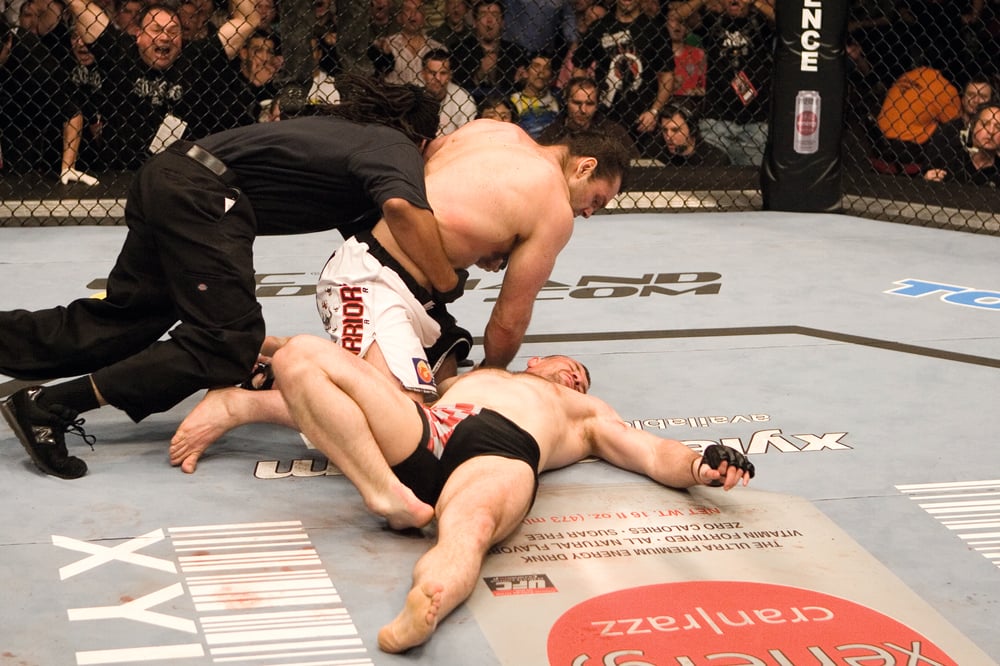
Herb Dean, UFC 70
Cro Cop vs Gabriel Gonzaga
When Gabriel Gonzaga knocked out Cro Cop with a gruesome head kick, Herb Dean’s actions in both protecting the downed Cro Cop from further injury and straightening out his folded leg highlighted the importance of referees being in the right position at the right time.
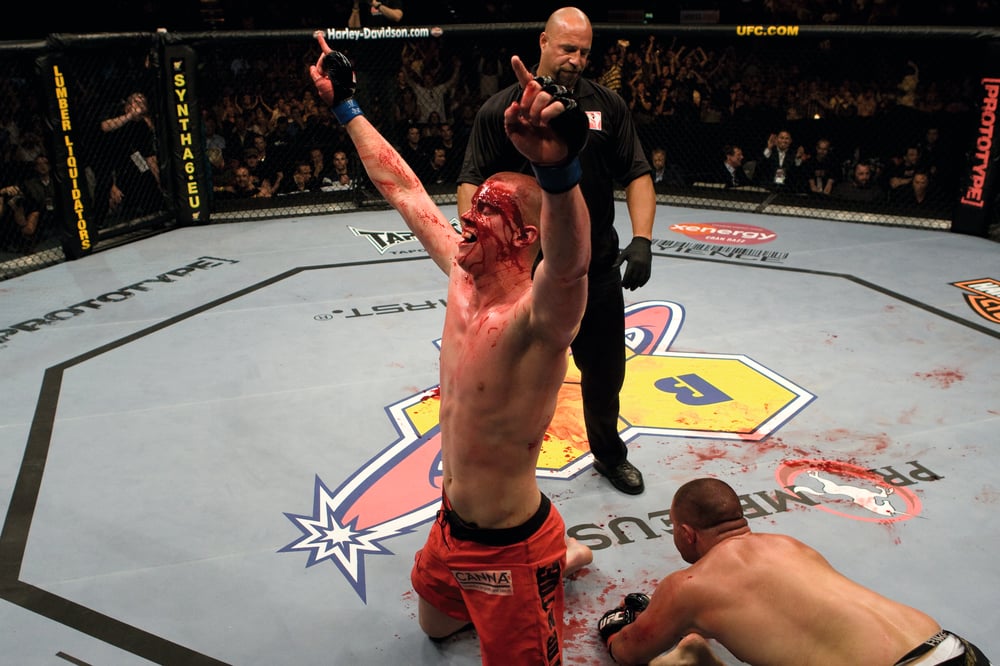
Dan Miragliotta, UFC 99
Stefan Struve vs Denis Stojnic
When to stop a fight can be a contentious issue between referees, fighters and fans. A fighter will often complain they could have fought on, sometimes legitimately. In this case, Dan Miragliotta kept a close eye on Stefan Struve and allowed him to work through Denis Stojnic’s horrendous ground ‘n pound. The result? Struve submitted Stonic in the second.
The bad...
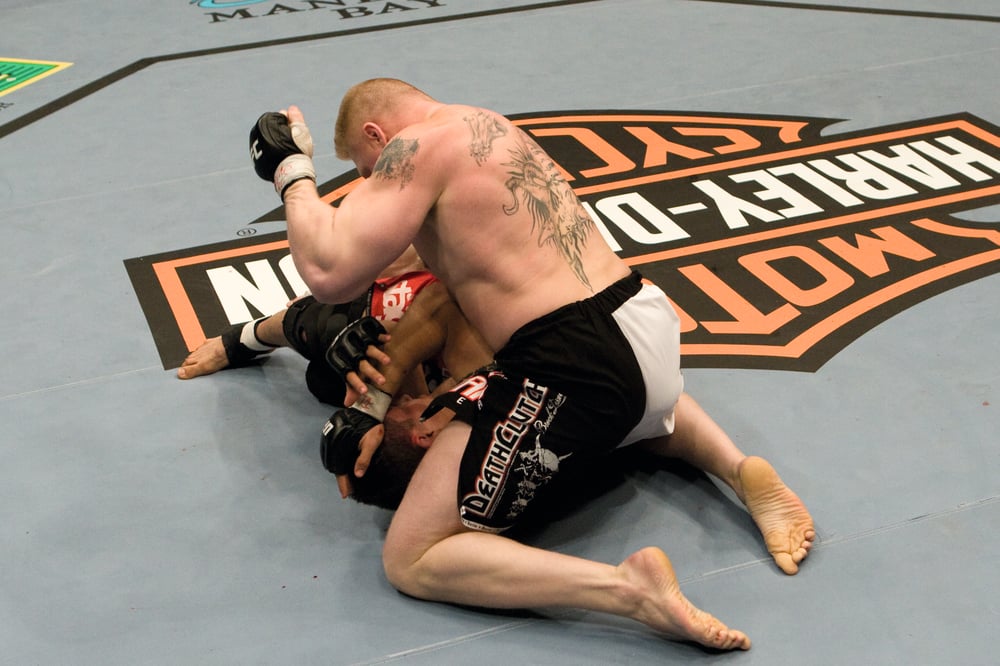
Steve Mazagatti, UFC 81
Brock Lesnar vs Frank Mir
When Steve Mazagatti jumped in and took a point from Brock Lesnar in his fight with Frank Mir, he completely changed the course of that fight. Lesnar was pounding away on a trapped Mir but Mazagatti stopped the action to deduct a point for a questionable (some say imaginary) blow to the back of the head. This allowed Mir to recover and submit Lesnar.
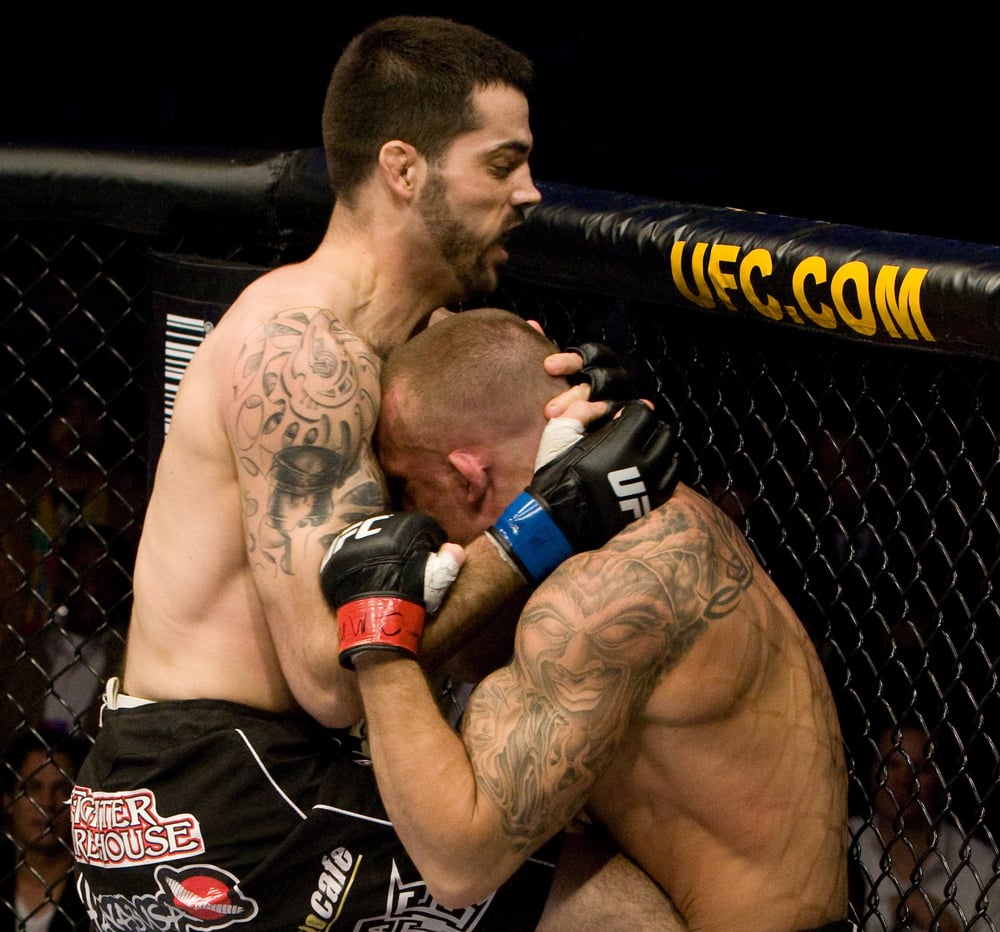
Yves Lavigne, UFC 96
Matt Brown vs Pete Sell
Though some referees get criticized for stopping the action too soon, the normally reliable Yves Lavigne was lambasted by critics, Dana White and even the winner, Matt Brown, for letting this fight go on too long. Brown tagged his opponent numerous times until Sell was literally out on his feet, but was forced to keep battering away at the tough New Yorker until Lavigne decided to call it off in the first round.
...

